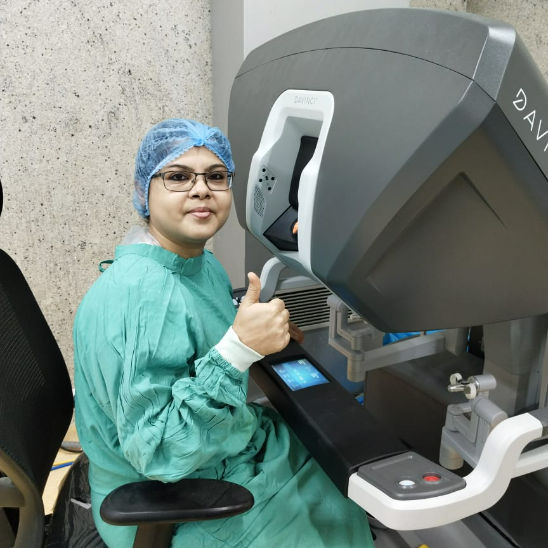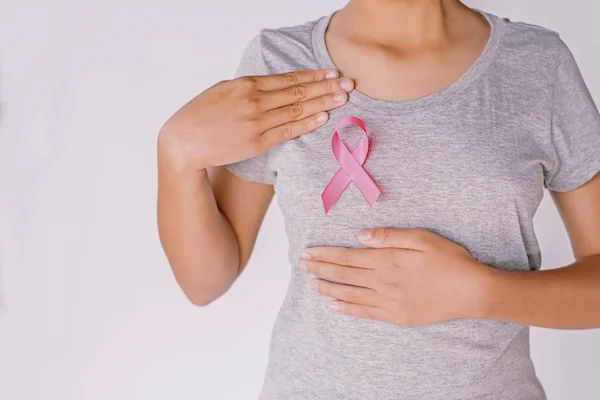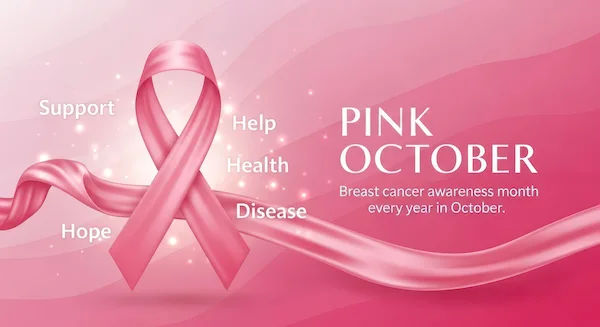Breast Cancer Anxiety Symptoms: Signs, Diagnosis And Treatment of Breast Cancer Anxiety
Explore the symptoms of breast cancer anxiety and its impact on mental health. Learn how to manage stress while navigating a diagnosis or screening.

Written by
Last updated on 13th Jan, 2026
Breast cancer continues to be one of the most common kinds of cancer worldwide, impacting millions of lives every year. While medical advancements have improved survival rates, the emotional toll of a diagnosis remains significant.
Anxiety is a common yet often overlooked aspect of the breast cancer journey. The uncertainty of test results, fear of recurrence, and the impact of treatment side effects can create overwhelming distress. Addressing anxiety as part of comprehensive breast cancer care is essential for both mental and physical well-being.
Anxiety and Breast Cancer
Anxiety in breast cancer patients is a natural psychological response to the stress and uncertainty of the disease. It manifests as persistent worry, fear, and emotional distress, often interfering with daily activities and decision-making.
Many individuals experience heightened anxiety from the moment of diagnosis through treatment and beyond.
Studies show that a large percentage of breast cancer patients struggle with anxiety and depression at different stages of their journey.
The unpredictability of the disease, long-term health concerns, and treatment effects contribute to ongoing emotional distress.
Recognising anxiety as a key psychological component of breast cancer care ensures that mental health support is prioritised alongside medical treatment.
Common Symptoms of Anxiety in Breast Cancer Patients
Anxiety can present itself in various ways, including physical, emotional, and behavioural symptoms. Recognising these symptoms early can help individuals seek appropriate support.
Physical Symptoms
Rapid heartbeat or palpitations
Shortness of breath
Excessive sweating
Dizziness or lightheadedness
Muscle tension and headaches
Gastrointestinal issues (nausea, upset stomach)
Sleep disturbances or insomnia
Emotional Symptoms
Persistent worry and racing thoughts
Fear of the unknown or worst-case scenarios
Feelings of sadness or hopelessness
Sudden episodes of panic (panic attacks)
Irritability or mood swings
Behavioural Symptoms
Avoiding medical appointments due to fear of bad news
Withdrawing from social interactions
Obsessively researching symptoms and treatment options
Difficulty concentrating or making decisions
Addressing these symptoms early can help individuals develop coping strategies and reduce the impact of anxiety on their daily lives.
Factors Contributing to Anxiety in Breast Cancer
Several factors contribute to the development of anxiety in breast cancer patients. One of the most significant is the fear of recurrence—even after successful treatment, many patients live with the anxiety that cancer could return. This fear can be triggered by routine follow-up scans, minor health issues, or discussions about cancer survival rates.
The side effects of treatment also play a major role in anxiety levels. Chemotherapy, radiation, and hormonal therapies often come with physical discomfort, fatigue, and cognitive changes, sometimes referred to as "chemo brain." The anticipation of these side effects can heighten anxiety even before treatment begins.
Additionally, changes in body image and femininity can cause emotional distress. Surgery, such as mastectomy or lumpectomy, can alter physical appearance, leading to feelings of insecurity and loss of identity. Hair loss from chemotherapy, weight fluctuations, and skin changes further contribute to self-esteem struggles, exacerbating emotional distress.
Diagnosis of Anxiety in Breast Cancer
Identifying anxiety disorders in breast cancer patients is crucial for providing the necessary psychological support. Here’s how patients can be screened for anxiety.
Healthcare providers use structured anxiety questionnaires and screening tools to assess emotional distress.
Psychological assessments, based on DSM-5 diagnostic criteria, help distinguish between general stress and clinical anxiety disorders.
Knowing when to seek help is an essential step that comes after getting screened. Here’s when seeking help is important.
If anxiety interferes with daily life, relationships, or treatment adherence, professional intervention may be needed.
Severe cases may require therapy, medication, or lifestyle adjustments to improve quality of life.
Regular mental health check-ins during cancer treatment can help patients receive timely emotional support.
Managing Anxiety in Breast Cancer Patients
There are various approaches to managing anxiety, ranging from psychological therapies to medical treatments and complementary practices.
Psychological therapies include:
Cognitive Behavioural Therapy (CBT) helps patients identify and challenge negative thought patterns.
Support groups and peer networks provide emotional reassurance by connecting individuals with others who share similar experiences.
In addition to this, medical assistance to combat breast cancer anxiety can include:
In some cases, anti-anxiety medications or antidepressants may be prescribed.
Medication can help stabilise mood and reduce excessive worry, particularly for patients experiencing panic attacks or sleep disturbances.
Other complementary approaches can also be explored, including:
Mindfulness meditation and deep breathing exercises can help calm racing thoughts.
Yoga and gentle exercise improve physical and mental well-being.
Journaling and creative activities provide an emotional outlet for stress.
A combination of therapies can help patients manage anxiety more effectively throughout their breast cancer journey.
Supporting Loved Ones with Breast Cancer Anxiety
Family members and caregivers play a vital role in supporting individuals experiencing breast cancer-related anxiety. Effective communication strategies include active listening, validating emotions, and offering reassurance without minimising concerns. Simply being present and allowing the patient to express their fears can be comforting.
Providing practical and emotional support can make a significant difference. Accompanying a loved one to medical appointments, helping with daily responsibilities, and encouraging self-care can alleviate some of the stress associated with cancer treatment. Encouraging professional support, such as therapy or counselling, can also help individuals cope with anxiety more effectively.
Prognosis and Quality of Life
Effectively managing anxiety can have a profound impact on treatment outcomes and overall quality of life. Patients who receive emotional support and develop coping strategies often report better adherence to treatment plans and improved physical recovery. Mental well-being is closely linked to immune function, meaning that addressing anxiety can contribute to better overall health.
Long-term strategies for maintaining mental health include ongoing counselling, support group participation, regular physical activity, and maintaining a balanced lifestyle. Many breast cancer survivors continue to experience anxiety even after remission, but with the right tools, they can lead fulfilling lives while managing their emotional well-being.
Conclusion
Anxiety is a common but often overlooked aspect of breast cancer care. Recognising the emotional impact of a diagnosis and providing appropriate support is crucial for improving mental and physical health outcomes. Early intervention, whether through therapy, medication, or self-care practices, can help patients navigate the emotional challenges of treatment and recovery.
Addressing anxiety as part of comprehensive cancer treatment ensures that individuals receive not only the best medical care but also the emotional support needed to cope with the psychological toll of the disease. By prioritising mental health alongside physical treatment, patients can find strength, resilience, and hope throughout their journey.
Consult Top Gynaecological Oncologists
Consult Top Gynaecological Oncologists

Dr. Sai Lakshmi Daayana
Gynaecological Oncologist
18 Years • MBBS, MRCOG
Hyderabad
Apollo Hospitals Jubilee Hills, Hyderabad
(225+ Patients)

Dr. Revathi S Rajan
Obstetrician and Gynaecologist
24 Years • MBBS, DGO, DNB.FFMM
Bengaluru
Apollo Clinic, JP nagar, Bengaluru
Dr. Navin Srinivasan
Gynaecological Oncologist
9 Years • MBBS, MS DNB(OBS-GYNAE), MCH (GYNAE ONCOLOGY)
Bengaluru
Apollo Clinic Mahadevapura, Bengaluru

Dr. Swati Shah
Surgical Oncologist
15 Years • DNB Surgical Oncology, certified Robotic Cancer Surgeon
Ahmedabad
Apollo Hospitals Gandhinagar, Ahmedabad
(25+ Patients)

Dr. Rupashree Dasgupta. Gynaecological Oncology
Gynaecological Oncology & Robotic Surgery
26 Years • MD(Gold Medalist, CMC Vellore), DGO(Gold Medalist, CMC Vellore),DNB, MRCOG(London), MBBS(FOGSI Gold Medalist in Gynaecology).Specialist in Advanced Laparoscopic & Robotic Surgery, UICC Fellowship in Gynae Oncosurgery(BARTS Cancer Institute, LONDON), da Vinci certified training as ROBOTIC CONSOLE Surgeon(USA), Fellowship Gynae Oncosurgery(TMC, Kolkata)
Kolkata
Apollo Multispeciality Hospitals , Kolkata, Kolkata
(375+ Patients)



